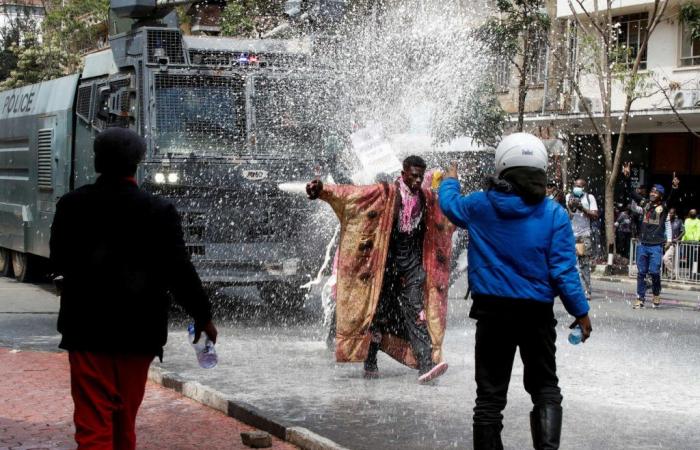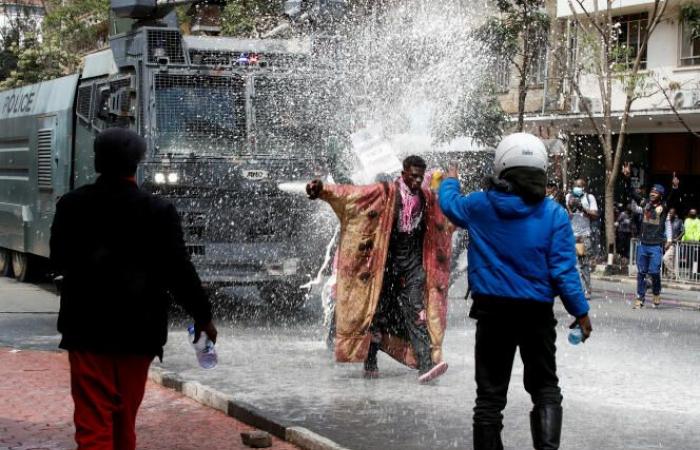At least thirty people were killed during anti-government demonstrations on Tuesday in Kenya, according to a report published on Saturday June 29 by Human Rights Watch (HRW), the heaviest reported on this day of mobilization which turned into chaos. The NGO arrived at this count on the basis “of testimonies, of publicly available information, of hospital and mortuary records”.
A previous report from the official Kenyan human rights body (KNHRC) reported twenty-two people killed in the country. The Police Reform Working Group, a group of local NGOs including the Kenyan branch of Amnesty International, claimed to have counted twenty-three deaths on the evening of June 25. “caused by police shootings”.
The authorities have not released any figures from this deadly day, marked by the storming of Parliament by demonstrators shortly after deputies voted on a criticized 2024-2025 budget project introducing tax increases.
Police accused of firing live ammunition
According to HRW, its investigators saw twenty-six bodies of protesters in different morgues in Nairobi, and other searches “show that police killed at least three people in Eldoret town [Ouest]a person in Nakuru [Centre] and one in Meru [Est]»the NGO said in a statement. Like several other NGOs, it accuses the police of firing live ammunition, particularly at the crowd gathered in front of Parliament, and calls “Kenyan authorities to promptly but credibly and transparently investigate abuses by security forces”.
HRW also reports the testimony of a human rights activist claiming that twenty-two people were killed by “military” in Githurai, about twenty kilometers north of Nairobi.
“Firing directly into crowds without justification, including when protesters are trying to flee, is completely unacceptable under Kenyan and international law.”said Otsieno Namwaya, HRW associate director for Africa in the press release.
« Occupy Parliament »
After two largely peaceful protests on June 18 and 20, the third day of the Occupy Parliament movement, launched on social media to oppose the 2024-2025 budget proposal of the government led by President William Ruto, which includes the introduction of new taxes, turned into a bloodbath.
This protest has strongly mobilized within the “Generation Z”, the young people born around the year 2000, before drawing Kenyans of all ages in its wake. The anti-tax slogan has become anti-government.
Read also | Article reserved for our subscribers In Kenya, President William Ruto represses protests and withdraws his finance law
Add to your selections
On Wednesday, President Ruto announced the withdrawal of the budget bill passed by parliament. Once in power, he had taken austerity measures, including last year increasing income tax and health contributions and doubling VAT on petrol.
Follow us on WhatsApp
Stay informed
Receive the essential African news on WhatsApp with the “Monde Afrique” channel
Join
The government says the fiscal measures are necessary to give the country more room to maneuver. Kenya’s public debt stands at about 10,000 billion shillings (71 billion euros), or about 70% of GDP.







